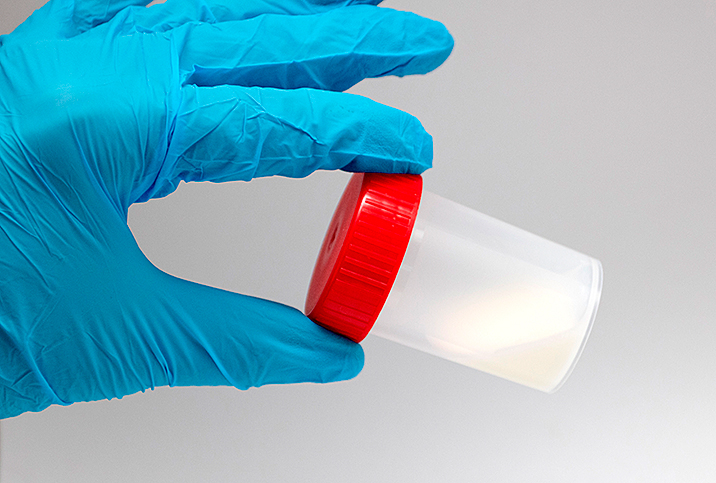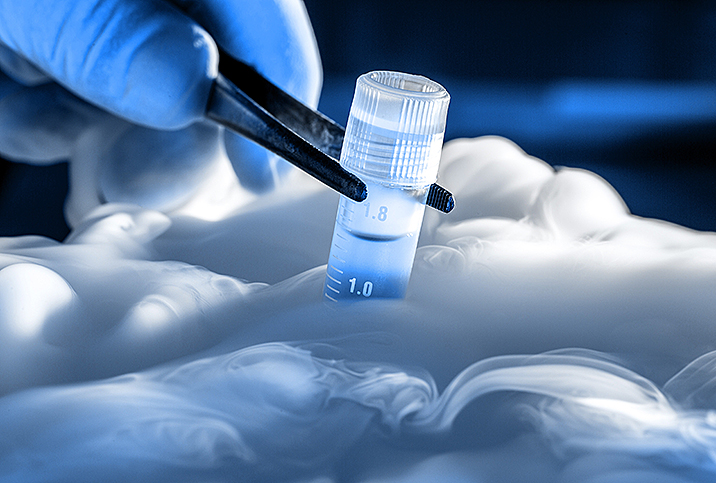Get Answers to Key Questions When Considering Sperm Preservation

Family planning isn't limited to one ideal. While some men are ready to start a family in their 20s, others have different goals in early adulthood. Some medical conditions or treatments can for various reasons cause men to delay having children for an undetermined amount of time.
But even if you don't want a family right now, you might later. If that's the case, a trip to the sperm bank is a smart idea. If you've never given sperm, find out what to ask at a sperm bank so you can properly preserve your "seed" for the future.
1. Can I bank sperm no matter what?
Unlike anonymous sperm donors to a sperm bank, men don't have to pass rigorous physical and psychological examinations to freeze their own sperm. You'll still have to undergo several evaluations to ensure you're healthy and a seminal analysis to ascertain if your sperm is healthy, as well as sign consent forms for the storage of your sperm. However, the reasons for banking your sperm, which could include upcoming chemotherapy or vasectomy, are entirely your own.
2. Can I still give sperm if I'm undergoing cancer treatments?
If you're diagnosed with cancer, your doctor may suggest fertility preservation, but make certain to get to the sperm bank before you start treatment. Once you've started chemotherapy, radiation therapy or other treatments, going to a sperm bank is no longer an option due to genetic damage to the DNA of the sperm. Cancer treatment may also cause sperm production to stop altogether or temporarily, and production may not return to normal levels for years. Many experts also suggest that men hold off having children for up to one year after cancer treatment, as damaged sperm can cause genetic disorders.
Getting to the bank on time can ensure you have a chance to become a father later in life, even if you're sterile after cancer treatment.
3. Can I bank sperm before and after a vasectomy?
Although many men decide they don't want a family or already have enough children, this thought can change over time. Thus, banking sperm before a vasectomy is a popular choice for many men.
Remember you don't have to bank sperm before a vasectomy, because it isn't a permanent procedure despite a common misconception: You could get a reversal. However, the likelihood of impregnating your partner is only 30 to 90 percent after a reversed vasectomy, despite reversals having a 90 to 95 percent success rate for sperm production.
You can also freeze sperm for later use if it is collected immediately after a vasectomy, or you can have your sperm withdrawn from your body through a process called sperm aspiration, which is used for in vitro fertilization (IVF). Both are viable alternatives, and although pregnancy success rates may be lower than with conventional means, there's still a chance you can conceive.
4. How long can my sperm live in a sperm bank?
If you're worried about the longevity of your sperm sample, you can rest easy. Thanks to advancements in cryopreservation, many sperm banks can preserve your specimen for up to 50 years. After this time, the sperm deteriorates too much to be used in fertility treatments.
Knowing your sperm will be safe long term, you may want to consider using a sperm bank early in adulthood because damage to the testicles from trauma or cancer can come without warning and jeopardize your ability to father a child. For the indecisive family planner or the inherent pessimist, sperm banks are a goldmine.
5. How or when can I retrieve my sperm in the future?
Retrieving your sperm for use is as simple as contacting the sperm bank. Once you've signed the release or withdrawal forms, the bank will conduct a sperm analysis to ensure the quality of the sample. If you have a partner or surrogate, your sperm can then be used in the IVF or intrauterine insemination (IUI) process.
Preserving your sperm in a bank for future use is a safe procedure, but the process isn't well known to everyone. By asking the right questions, you can learn the entire process and make an informed decision on whether to freeze one of the ingredients of your future babies. The only thing you have to lose is about a teaspoon of your genetic material.


















